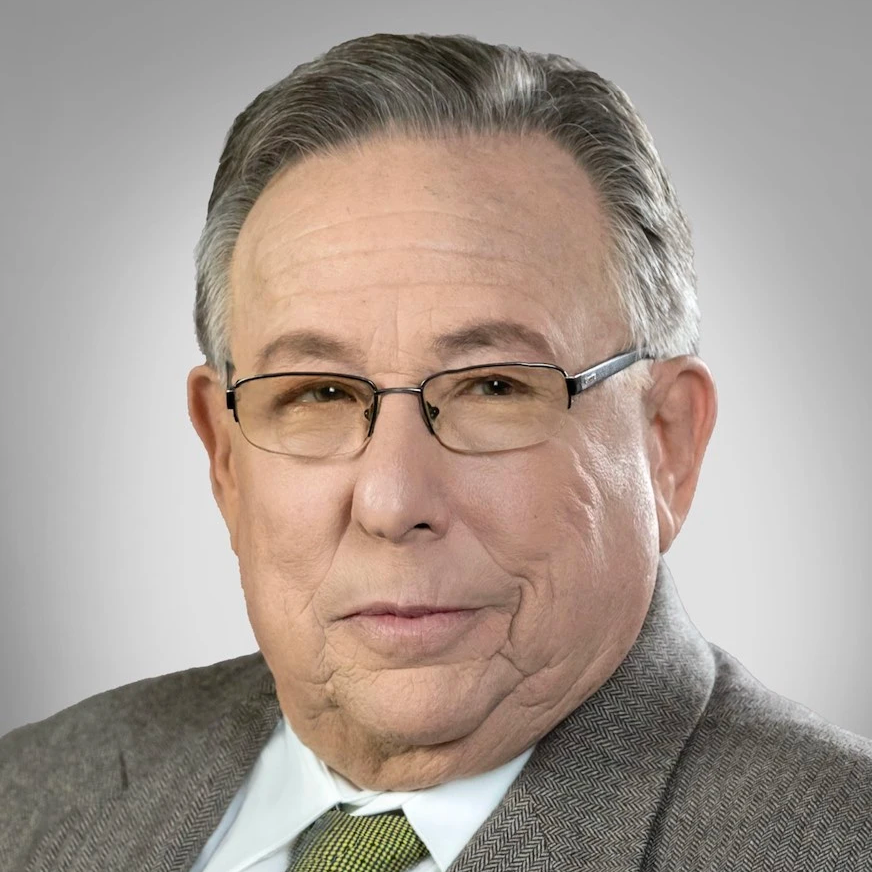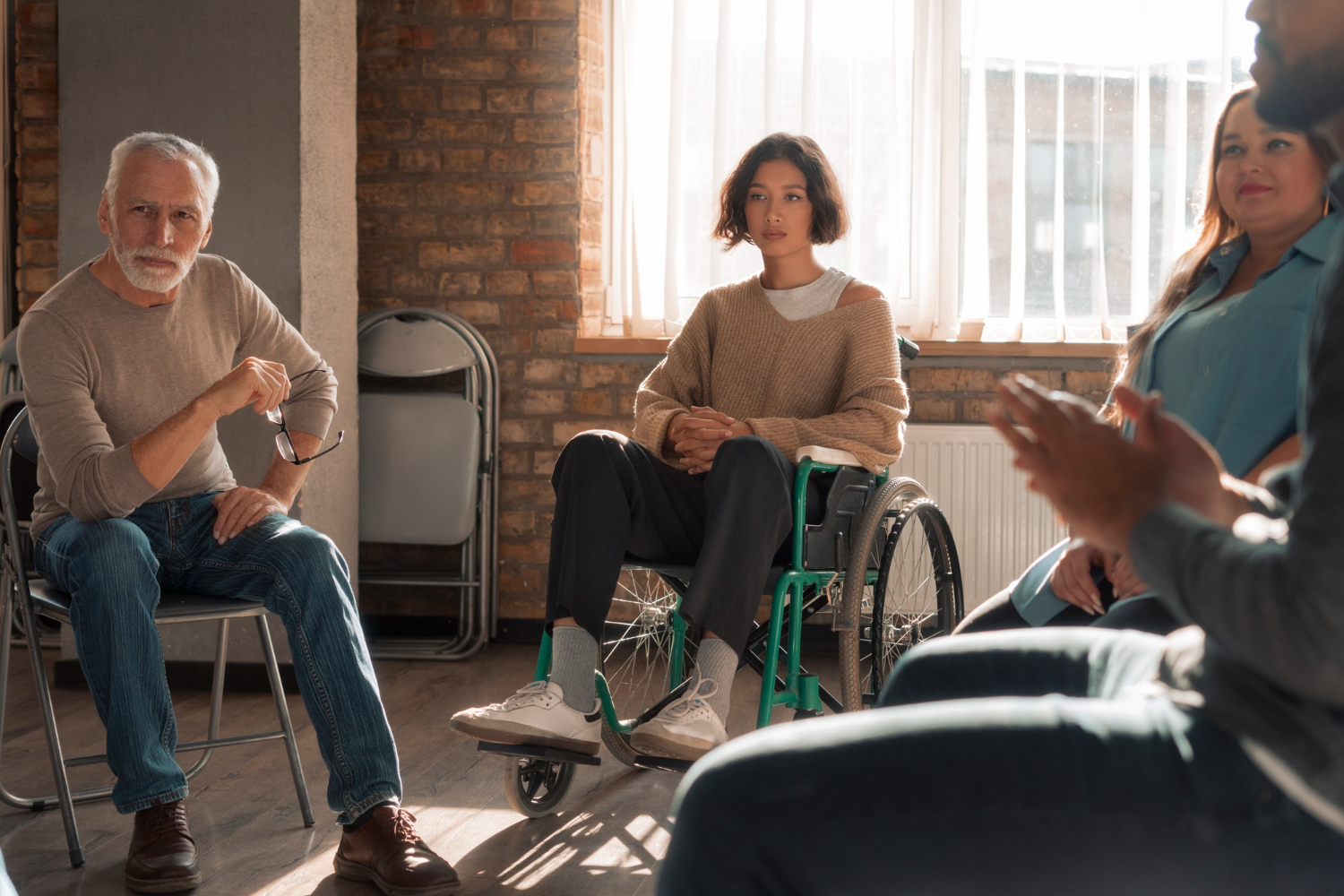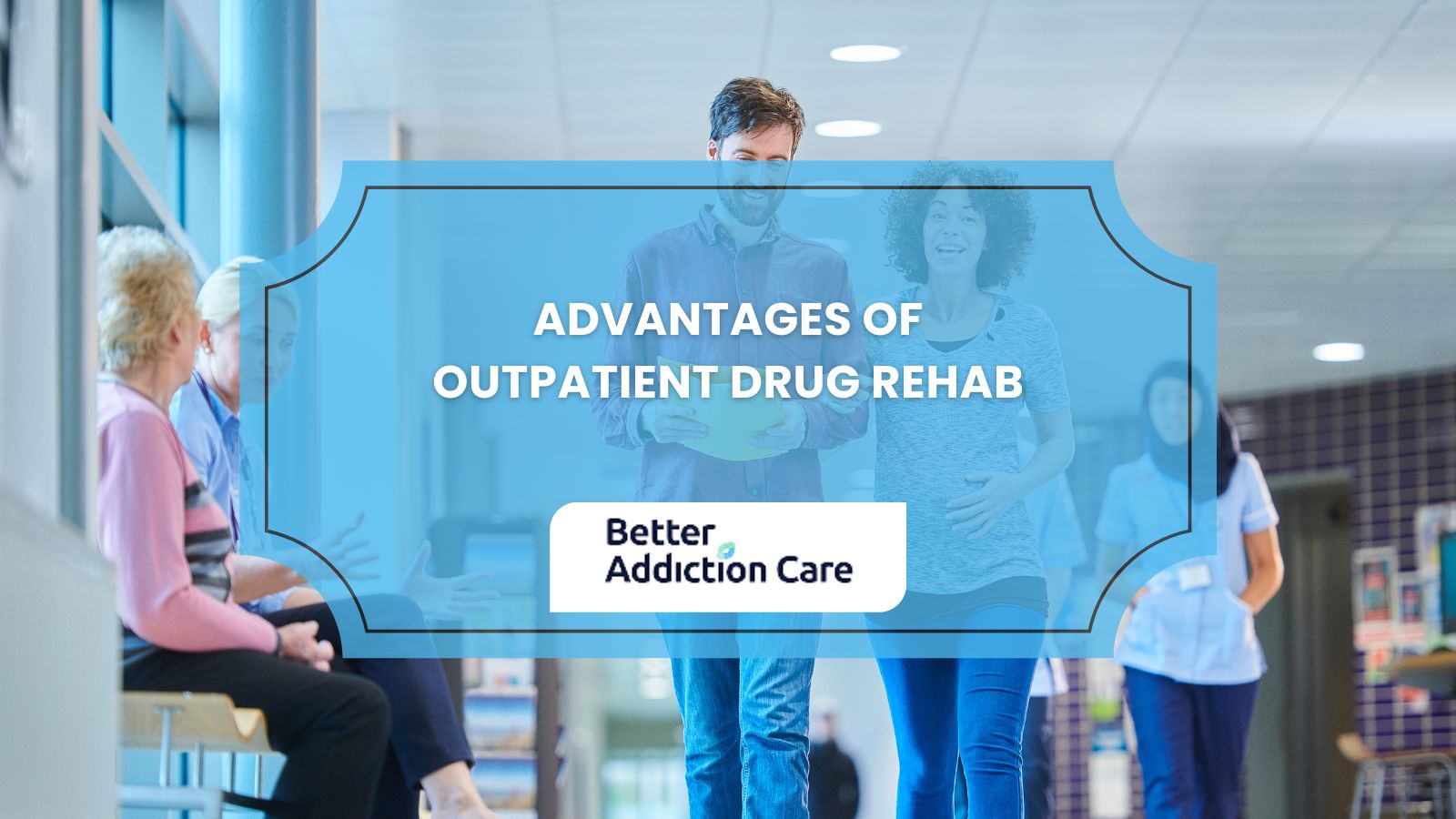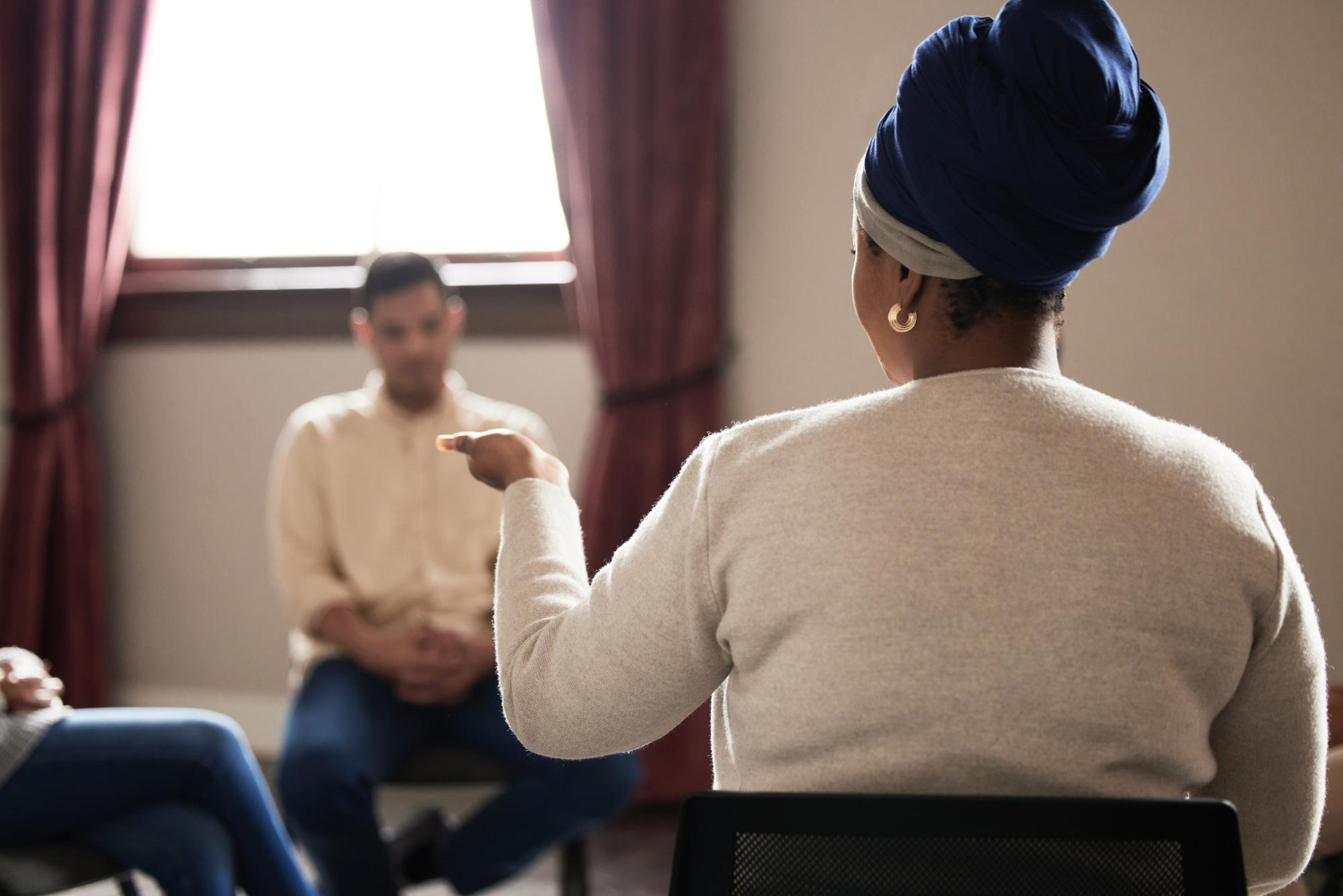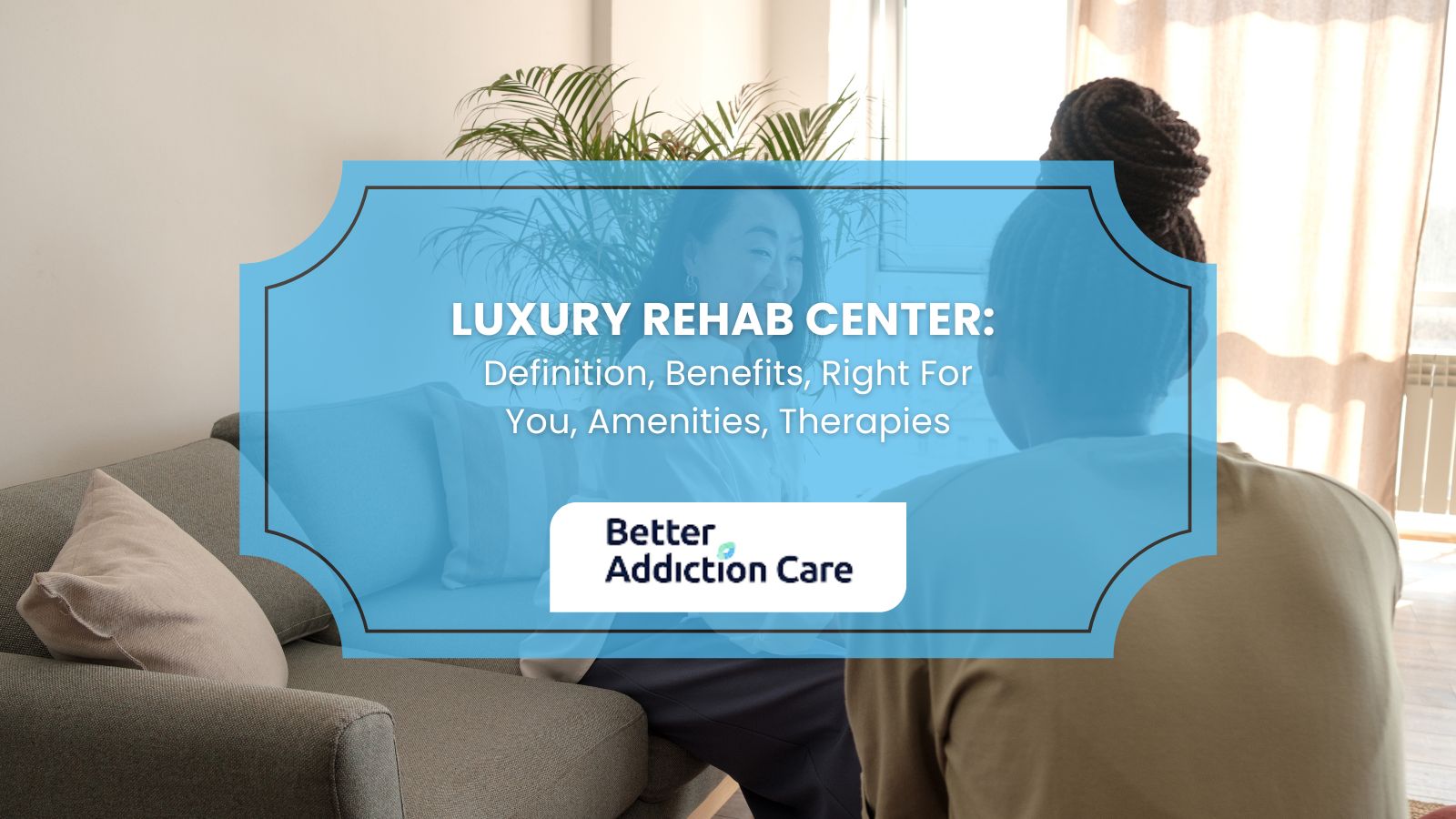Partial Hospitalization Program: Definition, How it Works, Cost
Partial Hospitalization Programs (PHP) provide structured therapy, medical supervision, and relapse prevention while allowing individuals to live at home. According to a study by the National Institute on Drug Abuse (NIDA) 2022, individuals in PHPs have a 54% higher treatment retention rate compared to those in standard outpatient programs.
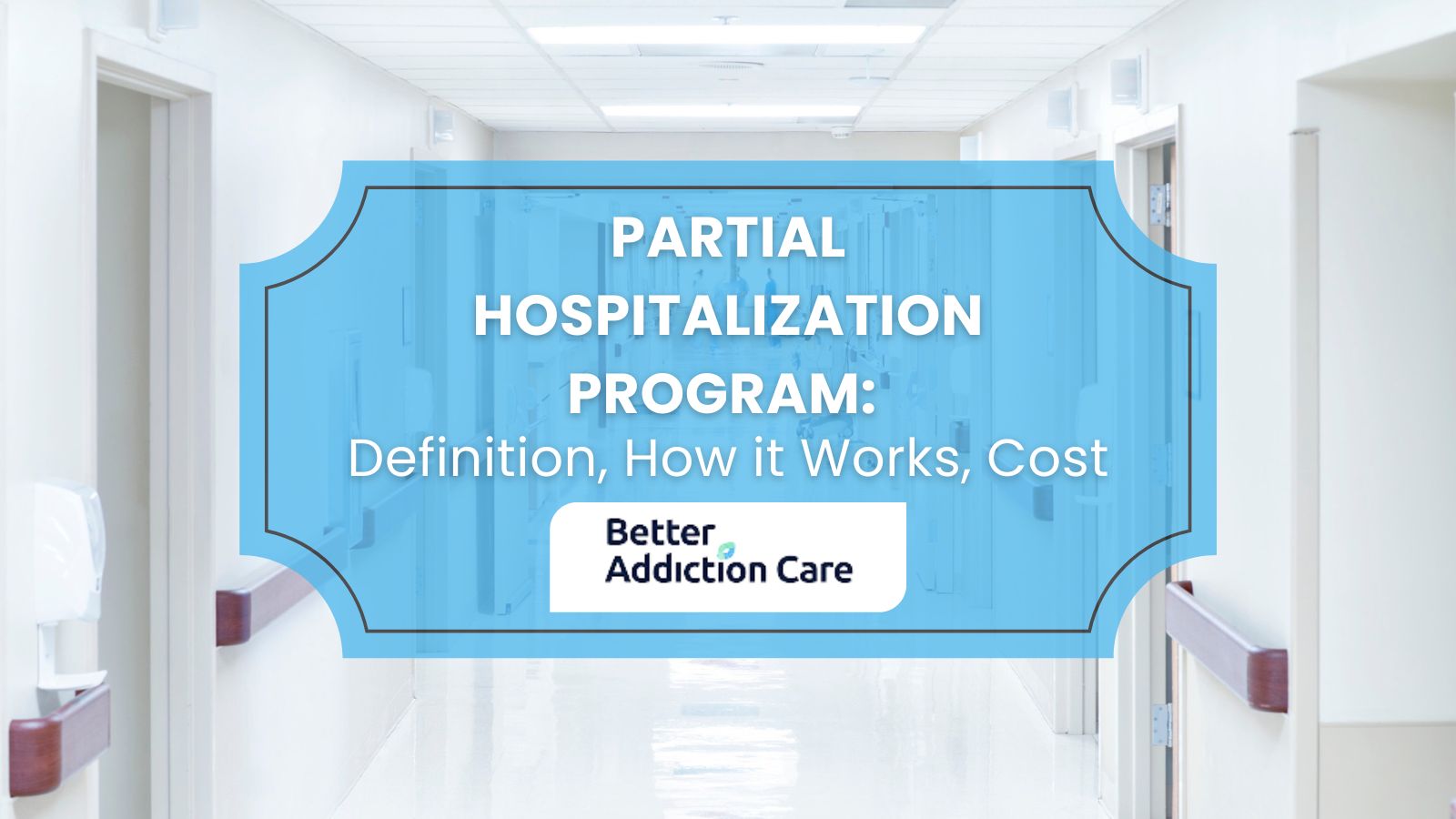
Partial Hospitalization Programs (PHP) provide structured therapy, medical supervision, and relapse prevention while allowing individuals to live at home. According to a study by the National Institute on Drug Abuse (NIDA) 2022, individuals in PHPs have a 54% higher treatment retention rate compared to those in standard outpatient programs.
A PHP rehab works by providing several hours of structured therapy, medical monitoring, and skill-building exercises each day, typically five to seven days a week. PHP treatment includes individual counseling, group therapy, medication-assisted treatment (MAT), and psychiatric care to help individuals address addiction and co-occurring mental health conditions.
The Substance Abuse and Mental Health Services Administration (SAMHSA) titled "Effectiveness of Structured Treatment Programs," published in 2022, PHPs reduce relapse rates by 47% within the first six months of treatment.
The average cost of a Partial Hospitalization Program (PHP) in the U.S. ranges from $350 to $450 per day, totaling approximately $10,500 to $13,500 for a 30-day program. Costs vary based on location, program services, and facility accreditation, with private rehabs being more expensive than state-funded programs.
According to a study by the American Journal of Psychiatry 2022, 64% of individuals seeking PHP treatment rely on insurance or financial assistance programs to cover costs.
What Is a Partial Hospitalization Program (PHP)?
A Partial Hospitalization Program (PHP) is a structured, part-time treatment program designed for individuals requiring intensive care without full hospitalization. It provides a flexible alternative to inpatient treatment, allowing patients to receive medical and therapeutic support during the day while returning home in the evening. PHPs focus on recovery through a combination of medical supervision, therapy, and skill-building exercises.
According to a study by the Substance Abuse and Mental Health Services Administration (SAMHSA) titled "Trends in Substance Use Treatment," published in 2022, partial hospitalization programs account for 16.5% of all substance use treatment admissions in the United States.
This prevalence highlights their role in bridging the gap between inpatient and outpatient care, offering a structured environment for those transitioning from hospitalization or needing more support than traditional outpatient therapy.
What Is the Duration of a Partial Hospitalization Program?
A partial hospitalization program (PHP) lasts between 10 to 30 days, depending on individual needs. Some programs extend to 60 or 90 days for those requiring prolonged support.
Customization is based on factors such as treatment progress, medical necessity, and the severity of addiction or mental health conditions. According to the National Institute on Drug Abuse (NIDA), longer treatment durations of 90 days or more are associated with improved recovery outcomes.
How Does a Partial Hospitalization Program Work?
A partial hospitalization program works by providing structured therapy, medical supervision, and skill-building exercises during the day while allowing individuals to return home in the evening. Treatment includes individual counseling, group therapy, medication management, and relapse prevention planning to support long-term recovery.
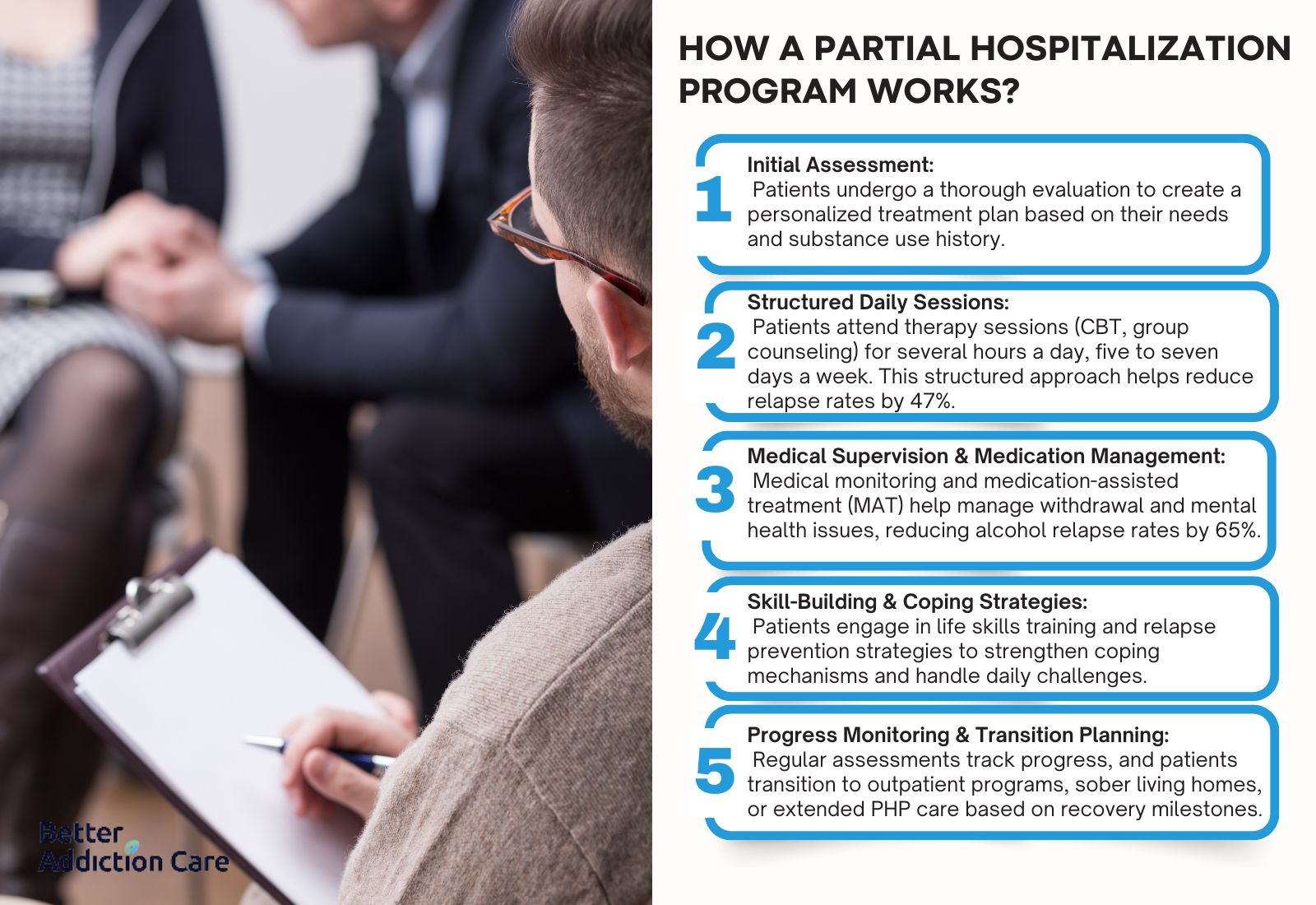
The process of PHP includes:
-
Initial Assessment: A PHP begins with a comprehensive medical and psychological evaluation to determine the individual's treatment needs, substance use history, and co-occurring conditions. Clinicians use standardized screening tools to create a personalized treatment plan. According to a study by the National Institute on Drug Abuse (NIDA) titled "Principles of Effective Treatment," published in 2021, individualized treatment plans improve recovery outcomes by 60%.
-
Structured Daily Sessions: Patients attend structured therapy sessions for several hours a day, five to seven days a week. These include cognitive behavioral therapy (CBT), group counseling, and medication-assisted treatment (MAT) when necessary. The Substance Abuse and Mental Health Services Administration (SAMHSA) reports that structured therapy in PHPs leads to a 47% reduction in relapse rates within the first six months.
-
Medical Supervision & Medication Management: Patients receive ongoing medical monitoring to manage withdrawal symptoms, mental health disorders, and medication adjustments. Psychiatrists and addiction specialists oversee medication-assisted treatment (MAT) for individuals with substance use disorders. According to a study by the National Institute on Alcohol Abuse and Alcoholism (NIAAA), MAT combined with PHP reduces alcohol relapse rates by 65%.
-
Skill-Building & Coping Strategies: Patients engage in life skills training, stress management techniques, and relapse prevention strategies. These skills help them navigate daily challenges while reinforcing healthy coping mechanisms.
-
Progress Monitoring & Transition Planning: Clinicians regularly evaluate patient progress through weekly assessments and therapy feedback. Based on recovery milestones, individuals either transition to an outpatient program, sober living home or receive extended PHP care. Research from the American Journal of Psychiatry (2021) highlights that structured step-down transitions improve long-term sobriety by 58%.
Is a Partial Hospitalization Program Effective for Drug Addiction?
Yes, a partial hospitalization program (PHP) is effective for drug addiction because it provides intensive treatment while allowing individuals to maintain daily responsibilities. Studies show that structured PHPs significantly reduce relapse rates by combining medical care, behavioral therapy, and peer support. According to a study by the National Institute on Drug Abuse (NIDA) titled "Treatment Approaches for Drug Addiction," published in 2022, individuals who complete a PHP have a 54% higher likelihood of maintaining sobriety compared to those in standard outpatient care. Additionally, research from the Substance Abuse and Mental Health Services Administration (SAMHSA) indicates that PHPs help 67% of participants achieve sustained recovery within the first year of treatment.
How Does PHP Compare to an Outpatient Drug Rehab?
PHP compares to an outpatient drug rehab in intensity, treatment structure, and medical supervision. While PHP provides structured, daily therapy with medical oversight, standard outpatient rehab offers fewer weekly sessions and less intensive care, making PHP a better option for individuals needing more support but not requiring full hospitalization.
The table below compares PHP to an outpatient drug rehab:
|
Factor |
Partial Hospitalization Program (PHP) |
Outpatient Drug Rehab |
|
Intensity |
High – 5 to 7 days per week, several hours daily |
Moderate – 1 to 3 sessions per week |
|
Medical Supervision |
Regular psychiatric and medical monitoring |
Limited or no medical oversight |
|
Treatment Structure |
Structured therapy, including CBT, DBT, MAT, and group counseling |
Less structured, with flexible therapy options |
|
Best For |
Individuals needing intensive support but not full hospitalization |
Those with mild to moderate addiction need flexible treatment |
|
Flexibility |
Allows patients to live at home but follows a strict schedule |
More freedom to maintain work, school, and personal commitments |
|
Cost |
Higher due to frequent sessions and medical care |
Lower due to fewer sessions and less intensive care |
|
Relapse Prevention |
Strong relapse prevention support with medical and therapy integration |
Relapse prevention depends on personal commitment and consistency |
According to the National Institute on Drug Abuse (NIDA), individuals with severe addiction benefit more from PHPs, with a 54% higher likelihood of sustained recovery compared to those in standard outpatient rehab.
Who Needs a Partial Hospitalization Program?
Individuals with mild to moderate addiction, strong support systems, and stable home environments need a partial hospitalization program (PHP). PHP is ideal for those who require structured treatment and medical supervision but do not need 24/7 inpatient care. It provides intensive therapy while allowing individuals to maintain daily responsibilities at home.
Good Candidates who need PHP include:
-
Individuals with mild to moderate substance use disorders who need structured treatment but not full hospitalization.
-
Those transitioning from inpatient rehab still require daily medical and therapeutic support.
-
People with co-occurring mental health conditions like anxiety, depression, or PTSD who need integrated treatment.
-
Individuals with strong support systems at home to reinforce recovery.
-
Those at high risk of relapse need intensive therapy to develop coping strategies.
-
Patients requiring medication-assisted treatment (MAT) for opioid or alcohol addiction under medical supervision.
What Therapies Are Used in a Partial Hospitalization Program?
The therapies used in a partial hospitalization program are cognitive behavioral therapy (CBT), dialectical behavior therapy (DBT), motivational interviewing (MI), group therapy, and medication-assisted treatment (MAT). These evidence-based treatments help individuals address underlying issues, develop coping skills, and prevent relapse through structured, medically supervised care.
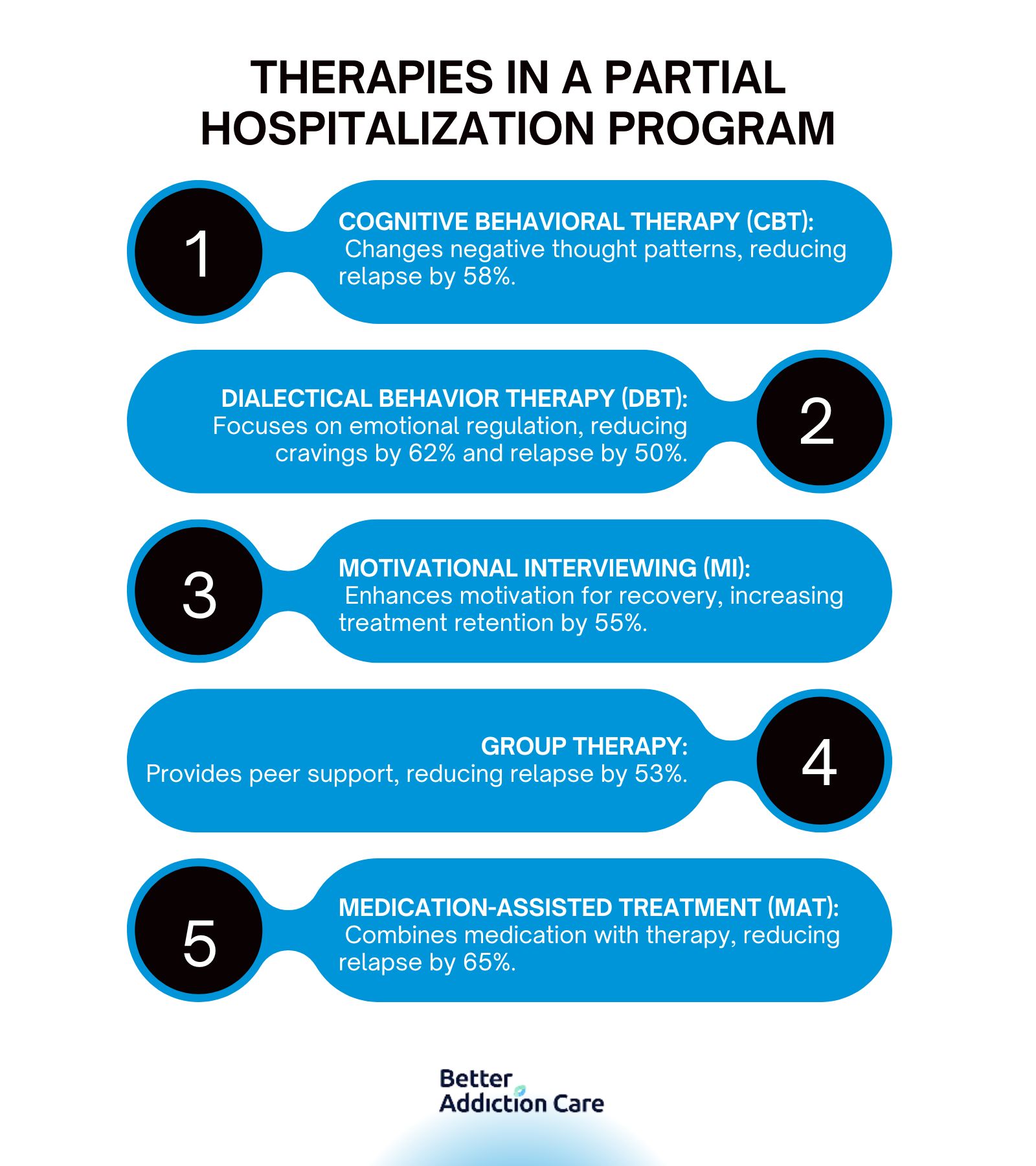
The therapies used in a partial hospitalization program are explained below:
Cognitive Behavioral Therapy (CBT)
Cognitive Behavioral Therapy (CBT) is a structured, goal-oriented therapy that helps individuals identify and change negative thought patterns contributing to addiction. It teaches coping strategies, emotional regulation, and relapse prevention techniques to support long-term recovery.
According to a study by the National Institute on Drug Abuse (NIDA) titled "Cognitive-Behavioral Therapy in Substance Use Disorder Treatment," published in 2021, individuals who complete CBT as part of a PHP experience a 58% reduction in substance use relapse within the first year.
Dialectical Behavior Therapy (DBT)
Dialectical Behavior Therapy (DBT) is a specialized form of cognitive therapy that helps individuals regulate emotions, improve interpersonal relationships, and manage distress without resorting to substance use.
It combines mindfulness, distress tolerance, emotional regulation, and interpersonal effectiveness skills to support long-term recovery. According to a study by the American Journal of Psychiatry titled "The Role of DBT in Treating Substance Use Disorders," published in 2021, individuals who undergo DBT experience a 62% reduction in substance cravings and a 50% decrease in relapse rates within the first six months.
Motivational Interviewing (MI)
Motivational Interviewing (MI) is a client-centered therapy that helps individuals resolve ambivalence toward treatment and build internal motivation for recovery. It focuses on enhancing a person’s willingness to change by reinforcing self-efficacy and exploring personal goals.
According to a study by William R. Miller titled "Effectiveness of Motivational Interviewing in Addiction Treatment," published in the Journal of Substance Abuse Treatment (2022), individuals who receive MI as part of a PHP show a 55% increase in treatment retention and a 48% improvement in long-term sobriety rates.
Group Therapy Sessions
Group therapy sessions provide a supportive environment where individuals share experiences, build social connections, and learn from peers facing similar challenges. These sessions are led by licensed therapists and focus on skill-building, relapse prevention, and emotional support.
According to a study by Irvin D. Yalom titled "The Therapeutic Factors in Group Therapy," published in the American Journal of Psychiatry (2021), participation in group therapy reduces relapse rates by 53% and improves long-term recovery outcomes by 60%.
Medication-Assisted Treatment (MAT)
Medication-assisted treatment (MAT) combines FDA-approved medications with behavioral therapy to reduce cravings, manage withdrawal symptoms, and support long-term recovery. It is commonly used for opioid and alcohol addiction, with medications like buprenorphine, methadone, and naltrexone.
According to a study by Nora D. Volkow titled "The Impact of Medication-Assisted Treatment on Substance Use Recovery," published in the New England Journal of Medicine (2022), individuals receiving MAT as part of PHP experience a 65% reduction in relapse rates and a 50% improvement in treatment retention.
What Is the Aftercare for a Partial Hospitalization Program?
The aftercare for a partial hospitalization program includes outpatient therapy, support groups, and relapse prevention planning. These services help individuals transition smoothly from structured treatment to independent recovery while maintaining long-term sobriety and mental health stability.
The aftercare for a partial hospitalization program is explained below:
-
Relapse Prevention Programs: These programs teach individuals how to identify triggers, manage stress, and develop coping strategies to prevent relapse. Therapy sessions focus on behavioral techniques, mindfulness, and lifestyle changes to reinforce sobriety. According to a study by Marlatt G.A. titled "Relapse Prevention Strategies in Addiction Recovery," published in the Journal of Clinical Psychology (2021), structured relapse prevention programs reduce relapse rates by 57%.
-
Sober Living Homes: These residential facilities provide a structured, substance-free environment for individuals transitioning from PHP to independent living. Residents follow house rules, participate in group meetings, and receive peer support to strengthen their recovery journey. According to a study by Douglas L. Polcin titled "The Role of Sober Living Homes in Addiction Recovery," published in the Journal of Substance Abuse Treatment (2022), individuals who stay in sober living homes for at least six months have a 64% higher likelihood of maintaining long-term sobriety.
-
Continued Counseling: Ongoing therapy, including individual and group counseling, helps individuals address underlying psychological issues and strengthen coping mechanisms. Therapy sessions focus on emotional regulation, trauma recovery, and goal-setting to promote long-term success. According to a study by Aaron T. Beck titled "The Long-Term Impact of Continued Counseling on Substance Use Recovery," published in the American Journal of Psychiatry (2022), individuals receiving continued counseling post-PHP have a 52% lower risk of relapse within the first year.
-
Support Groups: Peer-led support groups, such as Alcoholics Anonymous (AA) and Narcotics Anonymous (NA), provide accountability and encouragement during recovery. Regular attendance fosters a sense of community and reinforces relapse prevention strategies. According to a study by Keith Humphreys titled "The Effectiveness of Peer Support Groups in Addiction Recovery," published in the Journal of Addiction Medicine (2021), individuals attending support groups at least twice weekly maintain sobriety 74% longer than those without peer support.
What Are the Limitations of a Partial Hospitalization Program?
The limitations of a partial hospitalization program are its unsuitability for severe addictions, lack of 24/7 medical supervision, and dependence on a stable home environment. PHP is designed for individuals who need intensive care but still function in their daily lives, making it ineffective for those with severe substance use disorders requiring inpatient detoxification and constant monitoring.
According to a study by Mark J. Gold titled "Comparing Inpatient and Partial Hospitalization Treatment Outcomes," published in the American Journal of Psychiatry (2022), individuals with severe addiction have a 68% higher success rate in inpatient programs compared to PHPs due to the need for continuous medical oversight.
Additionally, PHP participants must have a structured, drug-free living environment, which is not possible for individuals without strong support systems. Without proper supervision at home, the risk of relapse increases, as reported by a study in the Journal of Substance Abuse Treatment (2021), which found that individuals lacking a stable home environment had a 47% higher likelihood of early dropout from PHP.
What Is the Cost of a Partial Hospitalization Program?
The cost of a partial hospitalization program (PHP) ranges from $350 to $450 per day, totaling approximately $10,500 to $13,500 for a 30-day program. Factors influencing the price include program duration, facility location, and the specific services offered.
For instance, PHP costs in the Dallas-Fort Worth area average between $350 and $450 per day, while in Nashville, Tennessee, they range from $250 to $500 per day. This variation indicates that treatment costs are lower in certain regions, depending on local economic conditions and facility pricing structures.
Is a PHP Covered by Insurance?
Yes, a partial hospitalization program (PHP) is covered by insurance, including private insurance, Medicaid, and Medicare, depending on the policy. Under the Affordable Care Act (ACA), substance use disorder treatment is classified as an essential health benefit, requiring most insurance plans to provide coverage.
Private insurers cover a portion or all of PHP costs, while Medicaid and Medicare offer partial or full coverage based on eligibility requirements and state regulations. According to a study by the Kaiser Family Foundation titled "Health Insurance Coverage for Substance Use Treatment," published in 2022, 78% of individuals in PHPs receive partial or full insurance coverage.
Are There Free Partial Hospitalization Programs?
Yes, there are free partial hospitalization programs (PHPs), but availability is limited and based on income eligibility or government funding. State-funded rehab centers, nonprofit organizations, and certain hospitals offer low-cost or free PHP services through grants, Medicaid, or sliding-scale payment options.
According to a study by the Substance Abuse and Mental Health Services Administration (SAMHSA) titled "State-Funded Treatment Programs in the U.S.," published in 2022, approximately 21% of PHP participants receive treatment at little to no cost through publicly funded programs. However, waiting lists for free PHPs are long, and services are less comprehensive than private facilities.
Is PHP Suitable For Individuals With Co-Occurring Mental Health Conditions?
Yes, a partial hospitalization program (PHP) is suitable for individuals with co-occurring mental health conditions, also known as dual diagnosis. PHPs provide integrated care that addresses both substance use disorders and mental health conditions through a combination of therapy, medication management, and psychiatric support.
Treatment includes cognitive behavioral therapy (CBT), dialectical behavior therapy (DBT), and medication-assisted treatment (MAT) to help individuals manage symptoms while working toward recovery.
According to a study by the National Institute on Mental Health (NIMH) titled "Integrated Treatment for Dual Diagnosis Patients," published in 2022, individuals receiving dual diagnosis treatment in PHPs experience a 59% improvement in symptom management and a 46% decrease in relapse rates.
Where to Find a PHP Rehab Near Me?
You find a PHP rehab near you at state-funded treatment centers, private rehab facilities, and nonprofit organizations specializing in addiction recovery. Resources like SAMHSA’s Treatment Locator, the National Alliance on Mental Illness (NAMI), Better Addiction Care and local health departments provide directories of accredited PHP rehab programs based on location and financial assistance options.
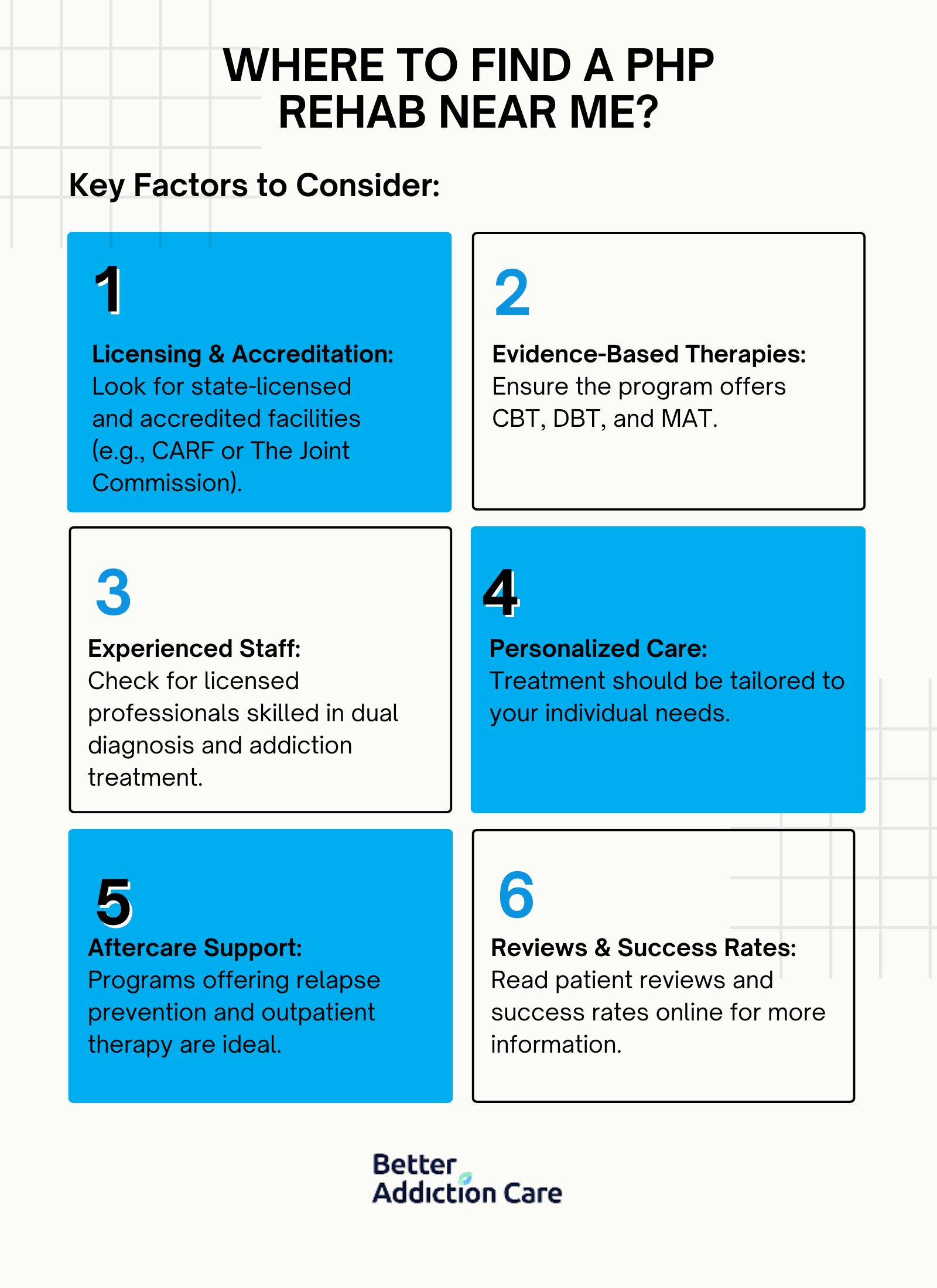
Places to find a PHP rehab near you include the following:
-
State Licensing & Accreditation: Choose facilities licensed by state health departments and accredited by organizations like CARF (Commission on Accreditation of Rehabilitation Facilities) or The Joint Commission to ensure high-quality standards.
-
Evidence-Based Treatments: Look for programs offering proven therapies like Cognitive Behavioral Therapy (CBT), Dialectical Behavior Therapy (DBT), and Medication-Assisted Treatment (MAT) for effective recovery.
-
Experienced Staff: A reputable PHP should have licensed therapists, medical professionals, and addiction specialists trained in dual diagnosis and substance use disorders.
-
Personalized Care Plans: Treatment should be tailored to individual needs, considering medical history, addiction severity, and mental health conditions for the best outcomes.
-
Aftercare Support: Programs that provide relapse prevention planning, outpatient therapy, and sober living recommendations increase long-term success rates.
-
Patient Reviews & Success Rates: Reading testimonials and checking online directories like the Better Addiction Care or SAMHSA’s Treatment Locator help you find reputable programs.
Our drug rehab locator helps you find accredited PHP (Partial Hospitalization Program) facilities across Florida, Texas, California, Pennsylvania, New York, Illinois, Georgia, Massachusetts, and Oklahoma. Search by location to discover state-licensed programs offering evidence-based treatments like CBT and DBT, with experienced staff providing personalized care plans and comprehensive aftercare support for your recovery journey.
Do I Live at Home While in PHP?
Yes, you live at home while in a Partial Hospitalization Program (PHP) receiving intensive daily treatment. PHPs are structured to provide evidence-based care, including therapy, medical monitoring, and medication management while allowing participants to return to a stable home environment each evening.
This setup is beneficial for individuals with strong family support and a drug-free living situation, as it helps reinforce recovery while maintaining personal responsibilities. According to a study by the National Institute on Drug Abuse (NIDA) titled "Effectiveness of Partial Hospitalization Programs in Addiction Treatment," published in 2022, individuals in PHPs who have stable home environments show a 63% higher treatment retention rate than those without strong support systems.
However, for individuals without a safe or supportive home, transitioning to sober living homes or residential care is a better option.
Do I Need Detox Before Starting PHP?
Yes, you need detox before starting PHP if the drug addiction is serious enough. Individuals with severe substance dependence need detox before starting a Partial Hospitalization Program (PHP). PHPs provide structured therapy and medical support, but they are not designed for managing acute withdrawal symptoms that require 24/7 medical supervision.
According to a study by the American Society of Addiction Medicine (ASAM) titled "The Role of Detoxification in Substance Use Recovery," published in 2022, 78% of patients with severe opioid or alcohol dependence require medical detox before transitioning into PHP for effective treatment.
Detox ensures that individuals are physically stable and ready to engage in therapy, reducing the risk of relapse due to unmanaged withdrawal symptoms. However, mild to moderate substance use cases are eligible to start PHP without a formal detox, depending on medical evaluations.
How Do I Know if PHP Is Enough for Me?
PHP is enough for you if you need intensive treatment but do not require 24/7 medical supervision. It is suitable for those with mild to moderate addiction, stable mental health, and a supportive home environment, allowing them to receive structured therapy while maintaining daily responsibilities.
According to a study by the National Institute on Drug Abuse (NIDA) titled "Matching Treatment Intensity to Patient Needs," published in 2022, individuals with moderate substance use disorders who attend PHPs have a 57% success rate in maintaining long-term sobriety.
However, in severe addiction cases, individuals with a high risk of relapse, or those lacking a stable home environment require inpatient rehab instead of PHP to ensure continuous care. A medical assessment by an addiction specialist helps determine if PHP is the right level of care based on individual needs and risk factors.
Does Partial Hospitalization Treat Alcohol Use Disorder?
Yes, a Partial Hospitalization Program (PHP) treats Alcohol Use Disorder (AUD) by providing structured therapy, medical supervision, and relapse prevention strategies. PHPs integrate cognitive behavioral therapy (CBT), medication-assisted treatment (MAT), and group counseling to help individuals manage cravings and build coping skills.
According to a study by the National Institute on Alcohol Abuse and Alcoholism (NIAAA) titled "The Effectiveness of PHPs in Treating Alcohol Use Disorder," published in 2022, individuals in PHPs for AUD experience a 62% reduction in alcohol consumption and a 49% decrease in relapse rates within the first year.
While PHP is effective for moderate to severe alcohol use disorder cases, individuals experiencing acute alcohol withdrawal or life-threatening symptoms need medical detox before transitioning into a PHP for safe and successful treatment.
Can Families Be Involved During PHP?
Yes, families can be involved during a Partial Hospitalization Program (PHP) through therapy sessions, education, and support groups. Many PHPs offer family counseling and psychoeducation programs to help loved ones understand addiction, improve communication, and provide a stable support system.
According to a study by John F. Kelly titled "The Role of Family Involvement in Substance Use Recovery," published in the Journal of Addiction Medicine (2022), individuals with strong family involvement during PHP have a 58% higher likelihood of maintaining long-term sobriety.
Programs also include family therapy sessions to address codependency, boundary-setting, and relapse prevention strategies, ensuring a healthier recovery environment. However, family participation varies by program, and some individuals choose to limit family involvement based on personal preferences or past relationship dynamics.
Will I Be Drug Tested During PHP?
Yes, you will be drug tested in a Partial Hospitalization Program (PHP) to ensure accountability and monitor progress. Drug testing helps detect relapses early, reinforce sobriety, and adjust treatment plans based on individual needs.
According to a study by Robert L. DuPont titled "The Impact of Drug Testing in Addiction Treatment," published in the Journal of Substance Abuse Treatment (2022), PHP participants who undergo routine drug testing have a 65% higher treatment adherence rate compared to those without testing.
Testing frequency varies by facility, but most programs conduct random or scheduled urine, saliva, or blood tests to maintain a structured recovery environment. If a test comes back positive, clinicians increase therapy intensity, recommend additional support, or reassess treatment suitability.
Is PHP Outpatient or Inpatient Care?
PHP is a form of outpatient care that provides intensive treatment without requiring an overnight stay. It offers structured therapy, medical supervision, and relapse prevention support, similar to inpatient care, but allows individuals to return home each evening.
According to a study by Eric J. Goplerud titled "Comparing Outpatient and Inpatient Addiction Treatment Outcomes," published in the American Journal of Psychiatry (2022), PHPs provide similar success rates to inpatient programs for individuals with moderate substance use disorders, with a 59% sustained recovery rate.
While PHP provides daily structured treatment, it differs from inpatient rehab, which requires 24/7 medical monitoring and on-site accommodation for individuals with severe addiction or withdrawal symptoms.
What Should I Bring to a PHP?
You should bring essential items such as identification, comfortable clothing, a journal, and any prescribed medications to a PHP. Many programs recommend a notebook for therapy notes, a list of emergency contacts, and a water bottle for long treatment sessions.
Electronics, outside medications, and prohibited substances are restricted, depending on facility policies. Patients should check with their PHP provider for specific guidelines on allowed and prohibited items.
Is There a Partial Hospitalization Program for Mental Health?
Yes, there are Partial Hospitalization Programs (PHPs) for mental health treatment. These programs provide intensive therapy, psychiatric care, and medication management for conditions such as depression, anxiety, bipolar disorder, and PTSD.
According to a study by Thomas R. Insel titled "The Effectiveness of Partial Hospitalization Programs for Mental Health Disorders," published in the Journal of Clinical Psychiatry (2022), individuals in mental health PHPs experience a 61% improvement in symptom management and a 49% reduction in hospitalization rates.
Treatment includes individual and group therapy, cognitive behavioral therapy (CBT), dialectical behavior therapy (DBT), and life skills training to help patients manage symptoms while maintaining daily responsibilities.
Mental health PHPs offer structured support without requiring inpatient hospitalization, making them ideal for individuals who need intensive care but still function independently.
Related Articles
Treatment Centers in California


